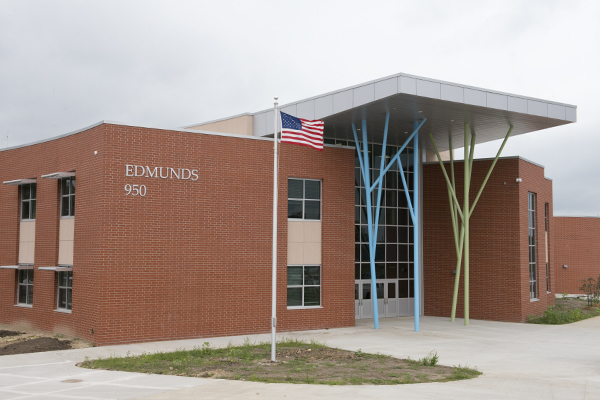How You Can Help Save Temecula Schools for Future Generations
How You Can Help Save Temecula Schools for Future Generations
Blog Article
The Effect of School Environments on Academic Success and Personal Health
The college atmosphere substantially affects both scholastic success and personal health, including components such as physical layout, classroom ambience, and social dynamics. The style of instructional rooms, including natural lights and ergonomic furniture, can enhance pupils' focus and comfort. Additionally, the high quality of teacher-student connections and the nature of peer communications play pivotal duties in fostering an environment for learning and psychological support. Comprehending how these various aspects interplay to form pupil end results raises vital inquiries concerning maximizing academic setups for all natural development. How can colleges purposefully boost these elements to much better support their pupils?
Physical Layout and Style
How does the physical format and style of an institution effect scholastic success? The setup and visual of an institution atmosphere can dramatically influence students' learning results.
All-natural lights and efficient ventilation systems are essential in improving cognitive function and minimizing absenteeism. Researches have revealed that class with ample natural light boost pupil focus and decrease feelings of sleepiness. Ergonomic furniture customized to pupils' needs can avoid physical pain, enabling for prolonged focus and involvement in academic tasks.
Accessibility to exterior areas and cosmetically pleasing environments likewise play an essential duty - Save Temecula Schools. Eco-friendly rooms and properly maintained college grounds supply possibilities for exercise and psychological relaxation, both of which are essential for keeping high degrees of scholastic performance. Essentially, an attentively designed physical environment can offer as a stimulant for scholastic excellence, cultivating an environment that sustains both training and knowing
Classroom Environment
An environment that promotes a feeling of safety and security, inclusivity, and mutual respect motivates trainees to engage even more proactively in their discovering procedures. The atmosphere of a classroom, consisting of elements such as lights, sound degrees, and seating setups, can considerably affect pupil focus and inspiration.
Additionally, the class ambience must support a culture of partnership and open interaction. They are much more likely to engage deeply with the material and develop crucial thinking skills when students really feel comfortable sharing their ideas and asking concerns. Peer communications and group activities can enhance knowing by cultivating and giving varied viewpoints synergy
Furthermore, developing clear expectations and consistent regimens can produce an organized environment that allows trainees to concentrate on their research studies. By minimizing uncertainty and providing a foreseeable framework, pupils can better manage their time and duties. Ultimately, a favorable classroom ambience not just improves scholastic performance but likewise adds to the general health of pupils, preparing them for future instructional and individual endeavors.
Teacher-Student Relationships
Building on the importance of a favorable class ambience, the connections between students and teachers play a critical function in forming scholastic success. A healthy teacher-student connection fosters a discovering environment where trainees really feel valued, understood, and sustained, which considerably boosts their motivation and involvement. When trainees perceive their educators as friendly and empathetic, they are a lot more likely to take part actively in course and seek help when required, adding to a deeper understanding of the topic.

This count on makes it possible for students to reveal their ideas and concerns openly, cultivating a joint understanding atmosphere. In significance, solid teacher-student relationships are a cornerstone of academic success, playing an essential role in both scholastic accomplishment and individual advancement.
Peer Interactions
Peer communications substantially affect scholastic success by forming a student's cognitive and social advancement. Within the institution atmosphere, peer relationships act as a foundational element for discovering and personal growth. Favorable peer interactions can enhance a student's motivation and involvement in academic tasks with joint understanding and common assistance. When trainees collaborate in team settings, they trade ideas, solve troubles collectively, and develop important thinking abilities. Such interactions promote a sense of belonging and community, which is vital for psychological health and academic perseverance.

Effective peer interactions likewise add to the growth of crucial life skills, such as communication, conflict, and participation resolution. These social expertises are crucial for both scholastic success and individual well-being, highlighting the significance of promoting positive peer characteristics within the school atmosphere.
After-school Activities
Engaging in after-school activities plays a crucial function in a student's scholastic success and personal development. These tasks, ranging from sporting activities teams a knockout post to debate clubs, use trainees chances to sharpen valuable skills such as management, time monitoring, and teamwork. Study constantly shows that trainees that participate in extracurricular tasks often tend to accomplish higher scholastic efficiency. This relationship is commonly credited to the structured environment and the technique called for to stabilize both academic and extracurricular dedications.
In addition, extracurricular participation cultivates a feeling of belonging get redirected here and neighborhood, which is necessary for individual well-being. Taking part in team tasks allows students to construct and reinforce social media networks, improving their social and emotional knowledge. These interactions are crucial for developing social abilities that are valuable in both future and scholastic expert atmospheres.
Furthermore, after-school activities supply a constructive electrical outlet for trainees to discover their rate of interests and interests past the typical curriculum. This expedition can lead to the discovery of new skills and prospective profession paths, further inspiring students to involve even more deeply in their scholastic job. Finally, the duty of after-school activities extends past plain leisure; they are integral to promoting an all natural academic experience that promotes both scholastic success and personal development.
Final Thought
Attentively designed physical formats and class, along with favorable teacher-student partnerships and constructive peer interactions, dramatically enhance pupil inspiration and engagement. These components collectively emphasize the relevance of developing and preserving optimal school settings for the benefit of pupils' academic and personal development.
Eventually, a positive class environment not just enhances scholastic efficiency but likewise contributes to the overall well-being of trainees, preparing them for future instructional and individual endeavors.

Report this page